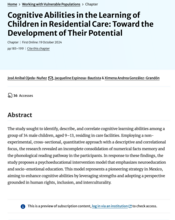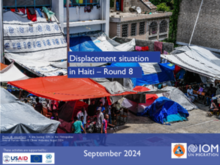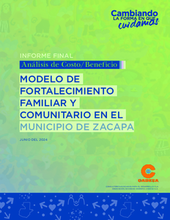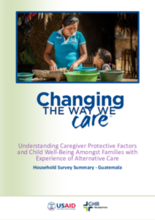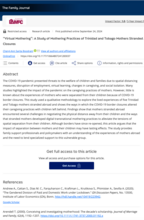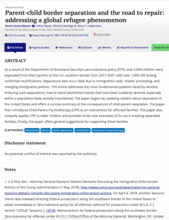This page contains documents and other resources related to children's care in the Americas. Browse resources by region, country, or category.
Displaying 91 - 100 of 3197
This study sought to identify, describe, and correlate cognitive learning abilities among a group of 34 male children, aged 9–13, residing in care facilities in Mexico. This model represents a pioneering strategy in Mexico, aiming to enhance cognitive abilities by leveraging strengths and adopting a perspective grounded in human rights, inclusion, and interculturality.
"We cannot do this work alone. The church in the United States of America has led the charge globally to provide solutions to children that no one was willing to care for," says Philip Aspegren, the co-executive director of Casa Viva.
Legislation now before Congress seeks better accounting of “hidden foster care” — a widespread but poorly regulated practice relied upon by child welfare agencies to shuffle kids out of their parents’ homes without court oversight.
This IOM report reveals that there are more than 700,000 people currently displaced within Haiti, 52% of whom are children. Haiti is experiencing an unprecedented crisis that has affected the entire population, including the many orphanages operating there.
Human rights organizations urge the Dominican Republic to respect treaties and conventions on the deportation of minors, highlighting the severe risks faced by children deported without their parents.
Legislation aimed at better protecting youth sent to residential treatment centers in California — a bill inspired by an Imprint and San Francisco Chronicle investigation — has been signed into law by Gov. Gavin Newsom.
Guatemala, con una población en aumento que proyecta alcanzar los 17.8 millones de habitantes para 2024, enfrenta serios desafíos sociales y económicos, especialmente en áreas vulnerables como el municipio de Zacapa.
In Guatemala, the survey in 2023 targeted all families who had participated in a case management process with CTWWC due to a reintegrating child or a child identified as at risk of separation, as well as a sample of households where the caregiver had attended a parenting school.
This study used a qualitative methodology to explore the lived experiences of five Trinidad and Tobago mothers stranded abroad and shows the ways in which the COVID-19 border closures altered their caregiving practices with children left behind.
This paper addresses the consequences of child-parent separation at the U.S. southern border and offers suggestions for supporting these families including child-parent psychotherapy.


